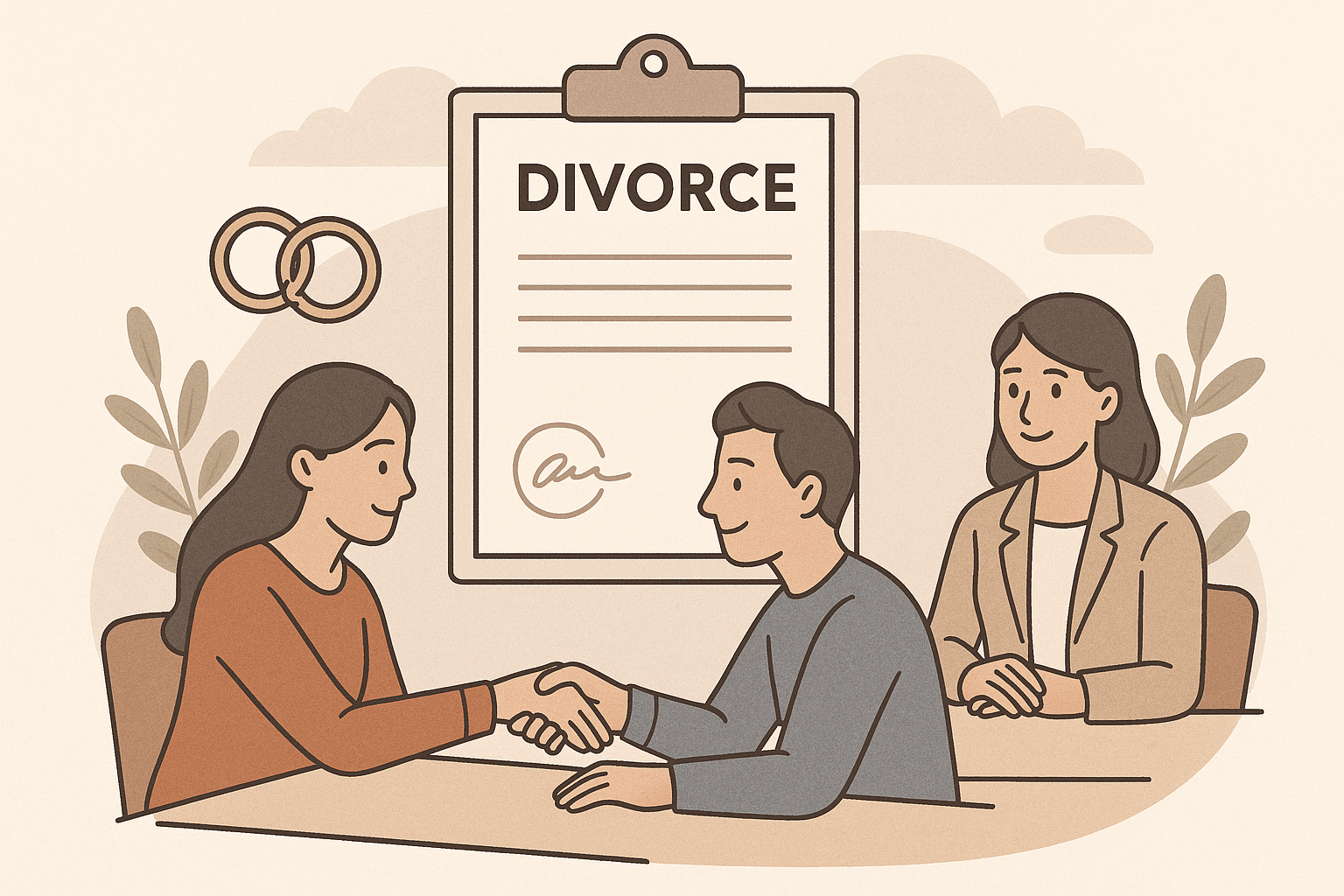Navigating the complexities of divorce can be daunting, especially when it comes to deciding on the best approach for your family. When facing the end of a marriage, two primary paths can be pursued: divorce mediation or divorce litigation. Understanding the differences between these options is crucial for making an informed decision that aligns with your family’s needs and goals.
Understanding Divorce Mediation
Divorce mediation is a process in which a neutral third-party mediator assists both spouses in negotiating the terms of their divorce. This method promotes collaboration rather than confrontation, allowing couples to maintain control over the decisions that affect their lives. Mediation can cover various aspects of divorce, including child custody, property division, and spousal support.
Advantages of Mediation
- Cost-Effective: Mediation is often less expensive than divorce litigation, as it requires fewer hours of attorney involvement and can expedite the divorce process.
- Faster Resolution: Mediation typically results in quicker outcomes, allowing families to move on with their lives sooner.
- Privacy: Mediation sessions are confidential, which means that the details of your divorce remain private.
- Less Stressful: The collaborative nature of mediation can reduce stress and promote a more amicable relationship between spouses.
- Tailored Solutions: Couples can create customized agreements that work for their unique situation rather than relying on a judge’s decision.
Disadvantages of Mediation
- Power Imbalances: Mediation may not be suitable if one party has significantly more power or control over the other, which can lead to unfair outcomes.
- Limited Scope: Mediation might not be effective in cases involving complex legal issues or significant disputes.
- No Guaranteed Outcome: If mediation fails, the couple may still need to go through litigation, which can prolong the process.

Exploring Divorce Litigation
Divorce litigation involves a formal court process where a judge makes decisions regarding the divorce. This approach is typically adversarial, with each spouse presenting their case and evidence to support their position. Litigation can be necessary in complex cases or when parties cannot reach an agreement.
Advantages of Litigation
- Legal Protection: The court process ensures that both parties’ rights are protected, especially in contentious situations.
- Structured Process: Litigation follows a clear legal framework, which can be beneficial in complicated cases involving significant assets or custody disputes.
- Binding Decisions: A judge’s ruling is legally binding, providing a definitive resolution to disputes.
Disadvantages of Litigation
- Costly: Litigation can be expensive due to court fees, attorney fees, and other associated costs.
- Time-Consuming: The litigation process can take months or even years, delaying the resolution of the divorce.
- Public Record: Court proceedings are public, meaning that sensitive information may become accessible to the public.
Key Considerations for Choosing Between Mediation and Litigation
When deciding between mediation and litigation, several factors should be considered:
- Relationship Dynamics: If both parties can communicate effectively and are willing to work together, mediation may be the best option.
- Complexity of Issues: For straightforward divorces, mediation is often sufficient. However, if there are complex financial matters or custody issues, litigation may be necessary.
- Desire for Control: Couples who want to maintain control over the outcome of their divorce should consider mediation, while those who prefer a judge to make decisions may opt for litigation.
- Financial Situation: Consider the costs associated with both options. Mediation is generally more affordable, while litigation can drain resources quickly.
- Emotional Well-Being: The emotional toll of divorce can be significant. Mediation can provide a less adversarial environment, which may be better for families, especially those with children.
The Role of Attorneys in Mediation and Litigation
Regardless of the path chosen, having legal representation is essential. Attorneys can provide valuable guidance, ensuring that your rights are protected and that you understand your options. In mediation, an attorney can help you prepare and negotiate effectively. In litigation, they will advocate for your interests in court.
Choosing the Right Attorney
When selecting an attorney to assist with your divorce, consider the following:
- Experience: Look for an attorney with experience in both mediation and litigation, as they can help you assess the best approach for your situation.
- Reputation: Research potential attorneys’ reputations through online reviews and testimonials from former clients.
- Communication Style: Choose an attorney who communicates effectively and understands your goals.
- Fees: Discuss fees upfront to ensure transparency and avoid unexpected costs.
Making the Right Decision for Your Family
Ultimately, the choice between divorce mediation and litigation depends on your unique circumstances. Consider your relationship with your spouse, the complexity of your divorce, and your desired level of control over the outcome. Consulting with an experienced attorney at G.J. Chavez & Associates, P.C. can provide the guidance you need to make an informed decision that is in your family’s best interests.
Navigating divorce is never easy, but understanding your options and working with a dedicated legal team can make the process smoother. Whether you choose divorce mediation or divorce litigation, G.J. Chavez & Associates, P.C. is here to support you every step of the way. Contact us today to discuss your situation and explore the best path forward for your family.







